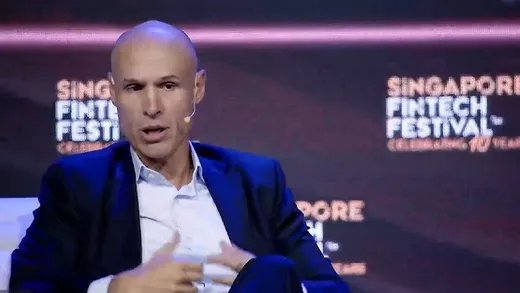
AI holds ‘tremendous potential’ for fraud detection, says Swift CEO
Artificial intelligence (AI) is set to reshape fraud detection and financial crime prevention across the global financial system, according to Swift Chief Executive Officer Javier Pérez-Tasso.
“Many of us were talking earlier about the massive improvements that AI can bring in operational efficiencies and in terms of improving process automations and customer coding, coding and customer services and so forth,” he said at the ‘C-Suite Insights: Roadmap for AI in Financial Services session’ at the Singapore FinTech Festival 2025.
On the specific role of AI in fraud detection, Pérez-Tasso noted its potential in extending capabilities beyond traditional card networks and retail banking into the account-to-account space.
“I think AI has a tremendous amount of potential when it comes to leveraging these new technologies to bring in the account to account space,” he said.
“What you’ve done very successfully in the cards, networks and retail level, at the level of the banks, you know, in the account to account space, a whole host of services in anomaly detections re scoring even further by going even deeper into what the federated learning capabilities of improving the models on for detection can bring to the industry in an era where we really need to take those steps in the fundamentals of the of the industry,” he explained.
Speaking about Swift’s global footprint, which spans 200 countries and 11,000 endpoints and processes transactions equivalent to the world’s GDP every two to three days, Pérez-Tasso cited the critical importance of trust.
He added that the Swift ecosystem is an industry-owned cooperative and an international public good. “Its success comes from security, resilience, and a shared decision-making body built on common standards.
Javier Pérez-Tasso noted that, similarly, AI will involve domestic frameworks that need to interoperate in a multi-jurisdictional model, making public-private collaboration essential.”
He highlighted that Swift is moving to a new ISO 2022 standard, which provides data-rich standards to help banks and other providers deliver new services and support financial compliance practices related to originating and beneficiary parties.
For Pérez-Tasso, trust is built on the industry’s foundational capabilities in cybersecurity, machine learning, financial crime prevention, compliance, resilience, and service availability.\
He also discussed the evolving financial landscape and customer expectations. “Clearly, there’s going to be more ways to move value in the future, not fewer, and customers will demand more choices, not less. So I would say that we need to keep an integrated and global view to the world going forward,” he said.
Looking ahead, he emphasized the convergence of traditional finance and decentralised finance (DeFi) as a growth driver.
“Is not going to be TradFi versus DeFi. It’s not an either or, it’s both, and actually the whole combination of both will be bigger than the sum of its parts,” Pérez-Tasso said.

















 Advertise
Advertise











